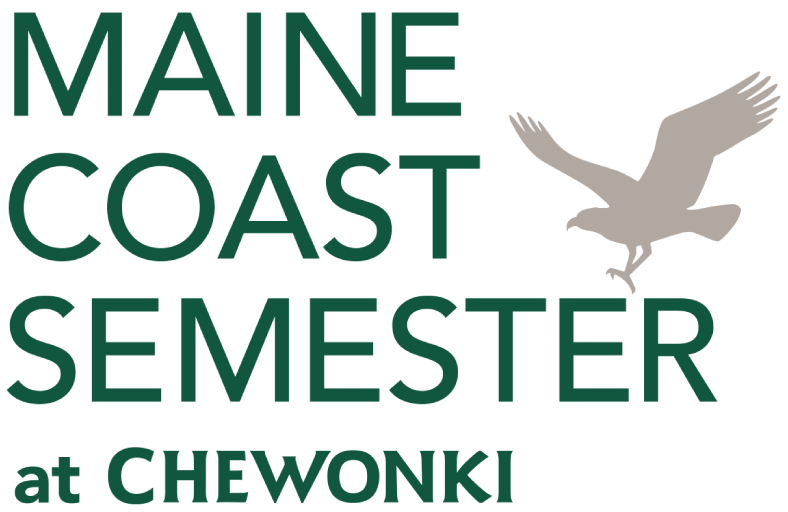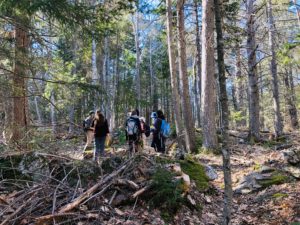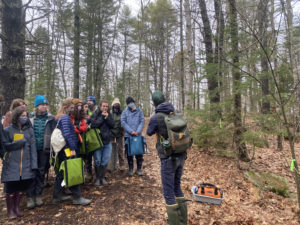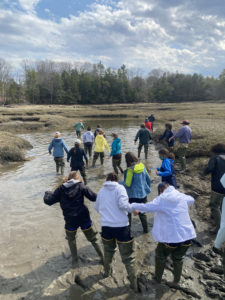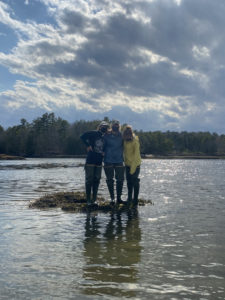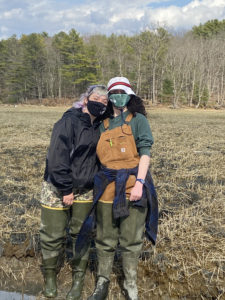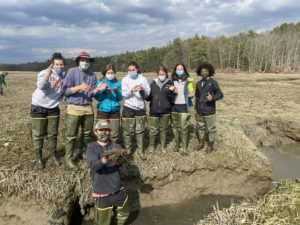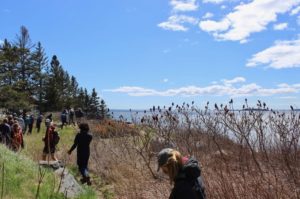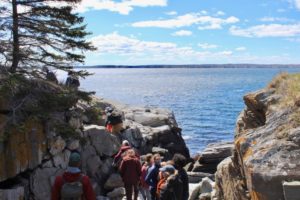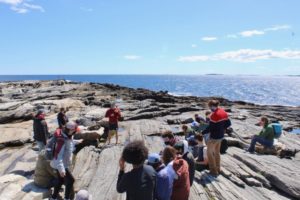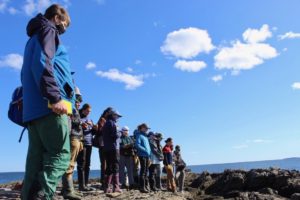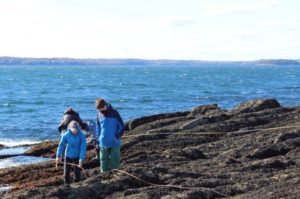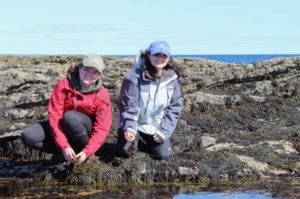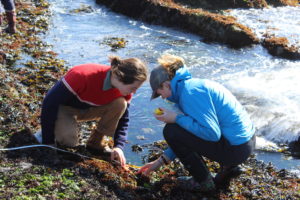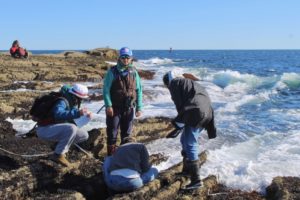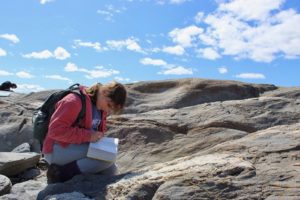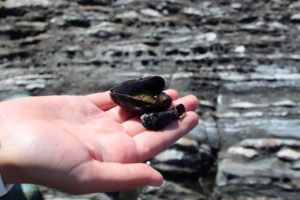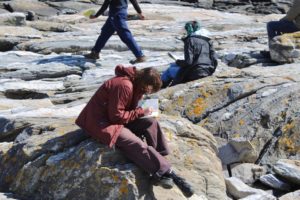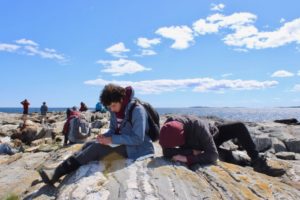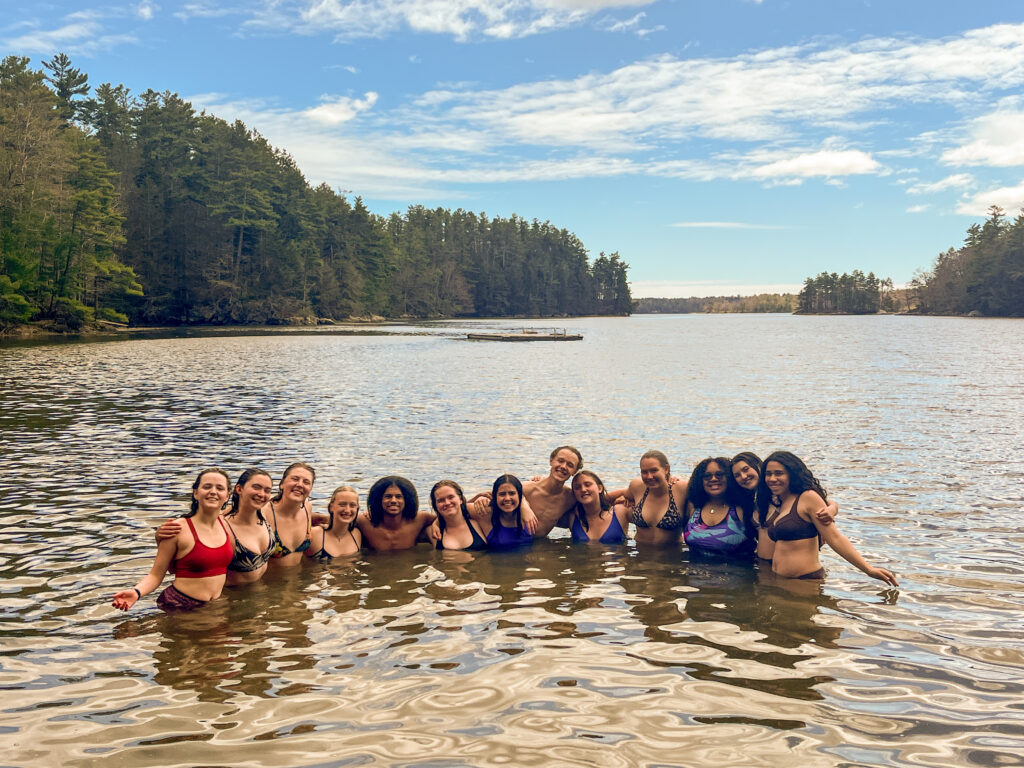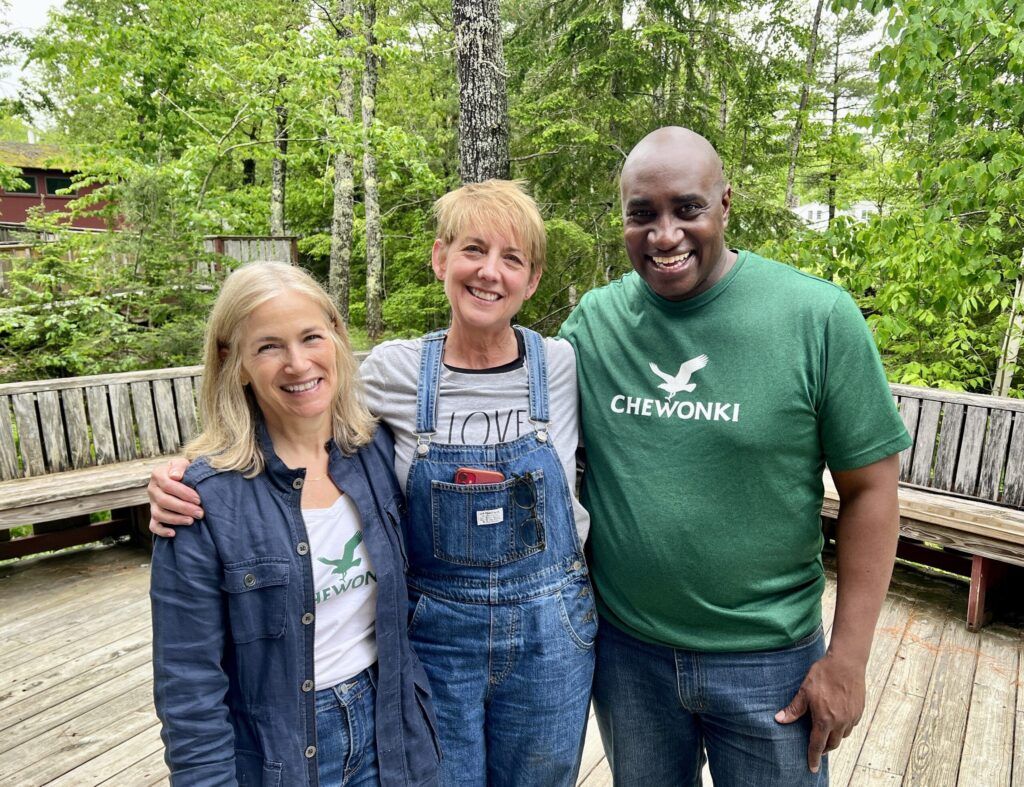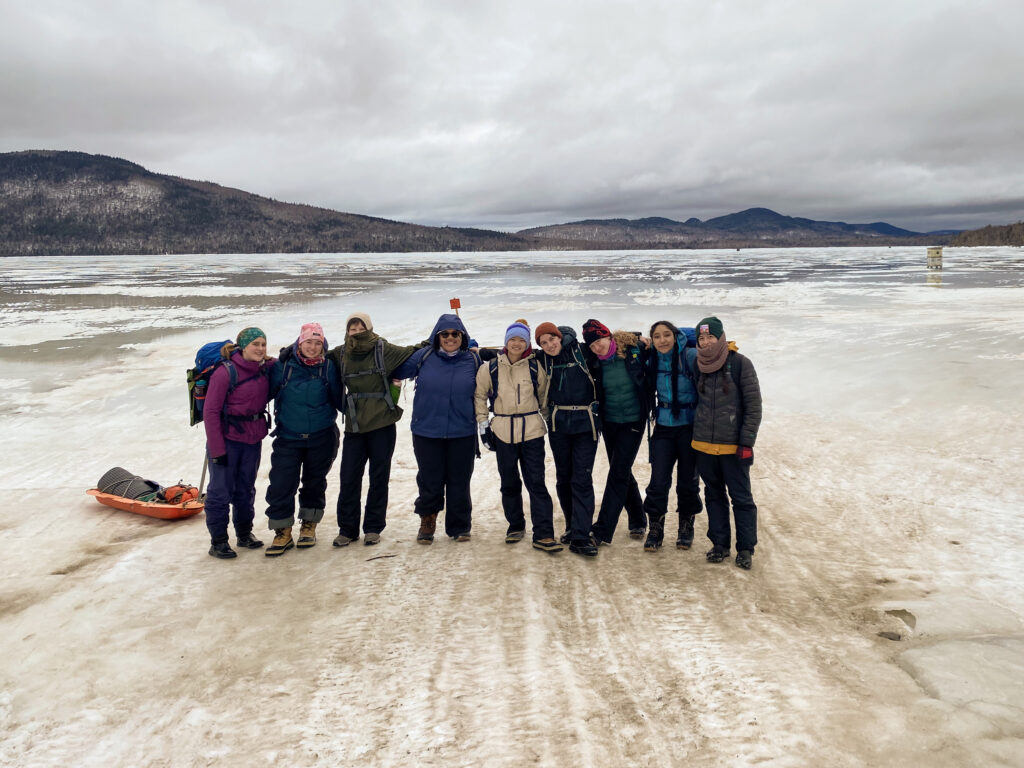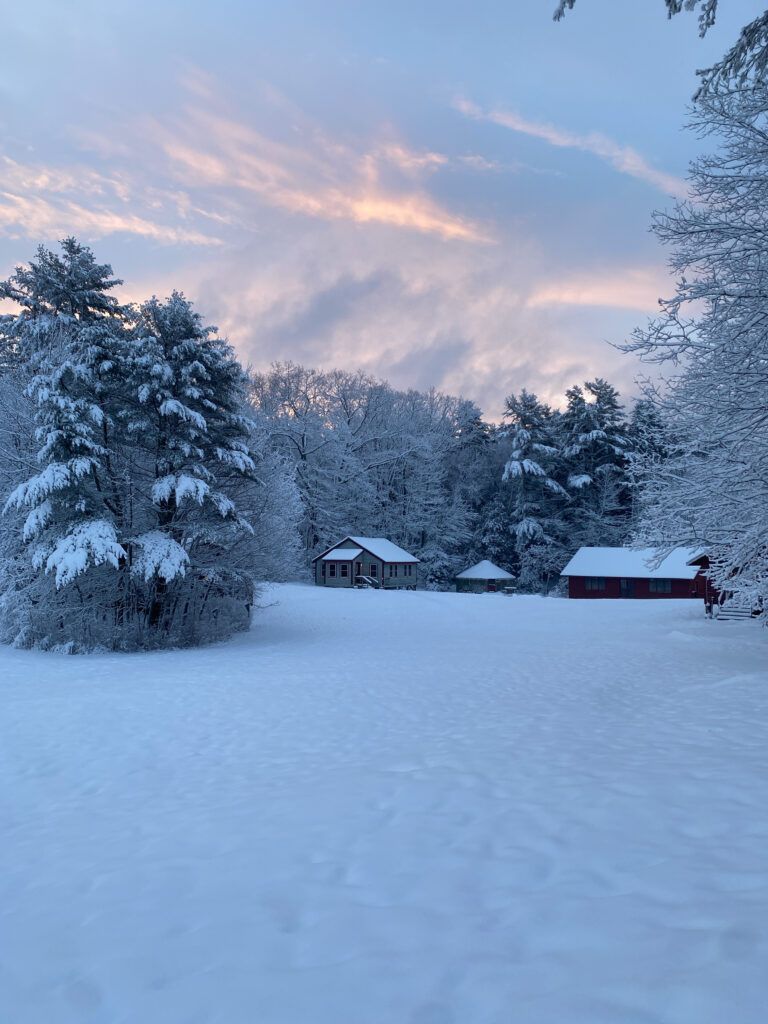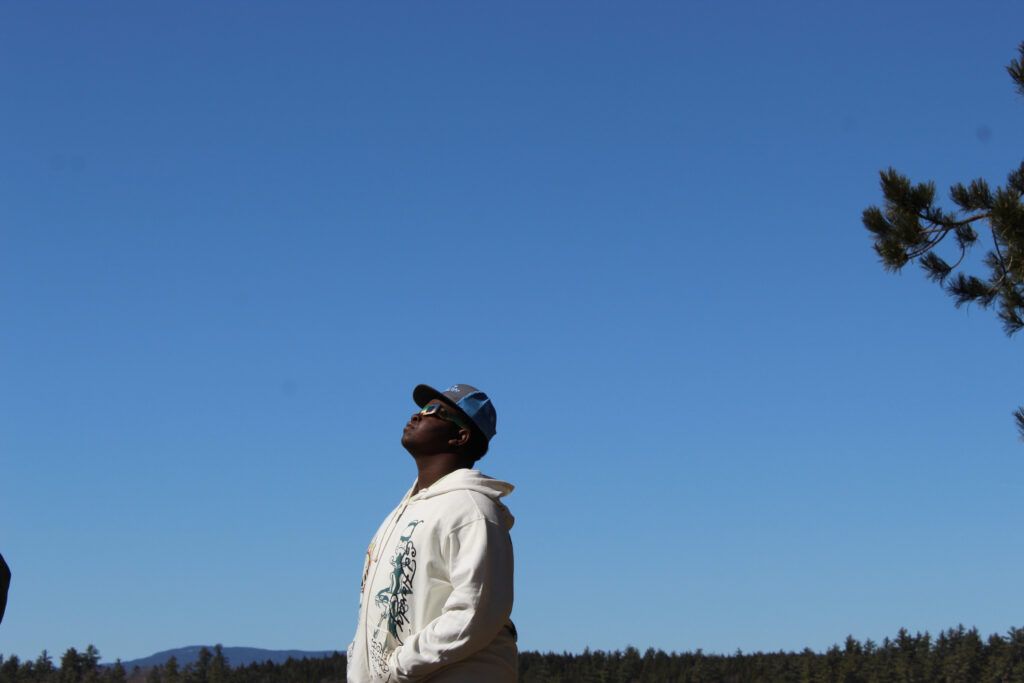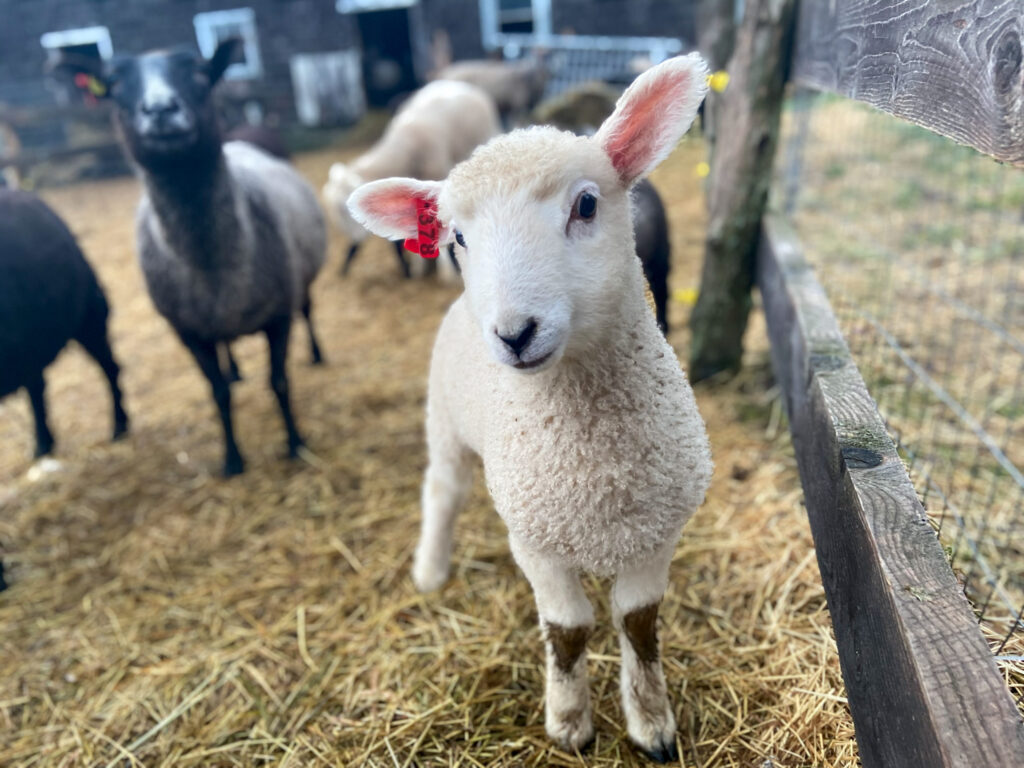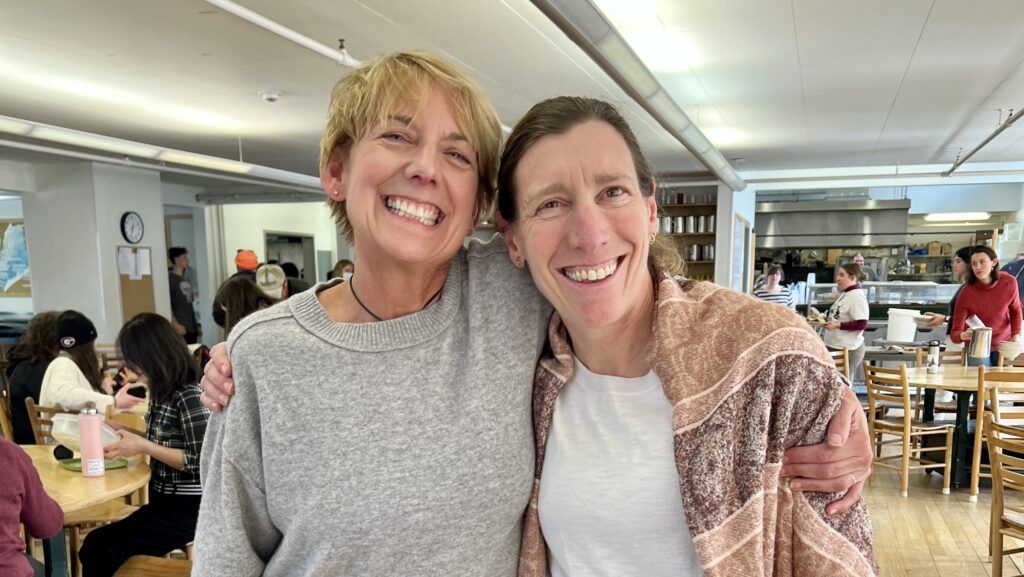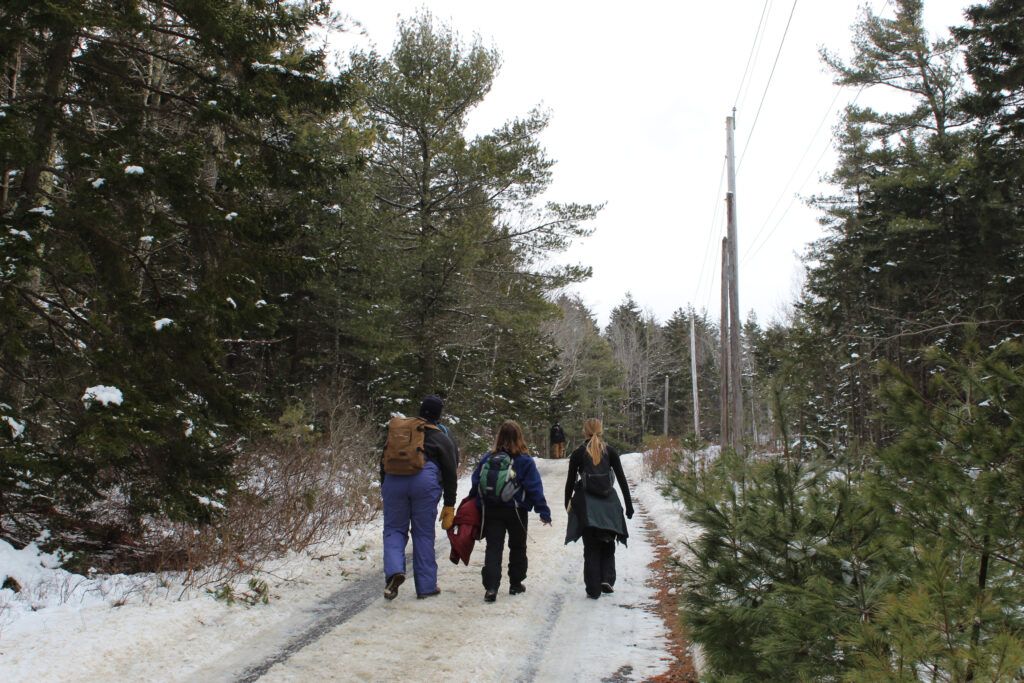I’m on Thursday field lab, and while that might not mean a lot to you, to us that means chaos. Field lab is a part of our Natural History class (affectionately called “Natty His” here). Every Tuesday or Thursday, half of the semester leaves Chewonki to explore an ecosystem and gain a greater understanding of it.
Our first field lab was here on Ideal Point, where we explored the intertidal zone and got closely acquainted with Ascophyllum Nodosum and Fucus Spiralis, or y’know, seaweed.
Our second field lab also took place on the Neck, in the forest more specifically. We learned about tree identification and the ecosystems that they provide for other organisms in the forest at all stages of their life.
On field lab number three, we piled into vans and drove to Popham beach to learn about birds, tides, and sand dunes. It was a brilliant warm spring day, the first fair weather the Thursday group had ever experienced. We saw a variety of birds and wandered in the wake of the waves where I personally collected a bunch of shells from the tide line.
Then came the most anticipated field lab, the Salt Marsh, and we were all very excited. Tuesday field lab had gone out and come back without incident or anyone really falling in; they were the calm group. On Thursday field lab, we had fun jumping from the river bank into the mud which the outgoing tide had vacated. This may have given Thursday field lab a reputation for chaos.
On field lab number five, a nice sunny spring day, we all loaded ourselves into vans and drove out to Pemaquid Point. Field lab runs from 1:30 to around 5:30 most days (including travel time). The first thing that Eric (science teacher) does is tell us about the house at the end of the point, whose side garden we would traverse through briefly to get to the water. So all twenty something of us walk down to the rocks after being told, “if there is a place you are most likely to break your ankles by just walking, it is here.” The scramble down rocks to the water was treacherous, but it was nothing compared to what would come.
We sat on the point learning about sedimentary rocks and how they turn into the metamorphic rock that we were sitting on. It was a fascinating geology lesson, incorporating near history (only ten thousand years ago) and the first iteration of the rocks we were sitting on forming as sedimentary rock (430 million years ago). Then, it was time for an exploration of the rocky intertidal zone. Because the tide was so low we got to wander all the way out to the edges of the point. While this was very exciting, it meant traversing seaweed-covered rock on which I, of course, fell. This did not stop anyone from making it all the way out to the point and looking at the tide pools held in the rocks. On our way to the tide pools we saw gutweed which would be on a species quiz the next day (this is possibly the only reason I could identify it).
I spent a while just clambering all over the point, looking at tide pools and the different species that they contained, until we were all called back together as a group. Ella had made an impressive find, and the little orange/yellow creature was set into a tide pool for later observation. With this, we split into groups to survey a cross section of the rocky intertidal zone. Unfortunately, this is where my fall caught up to me, and so I sat recording my group’s findings next to a tide pool while they ran fearlessly over the seaweed-covered rocks. In my seat next to the tide pool a sea slug was discovered! We moved it from the tide pool into a bin with water so everyone could observe it in all of its glory.
And with that, field lab sadly ended, and we braved the way back. It was of course another treacherous scramble back over the seaweed covered rocks to the non-seaweed-covered rocks that were, nevertheless, full of treachery. We finally made it back to the parking lot, looking out to the sea once more as we piled into buses and drove back to the Neck.
Alice Polen, Bard High School Early College, New York, NY
Learn more about our place-based science class and weekly field labs!
